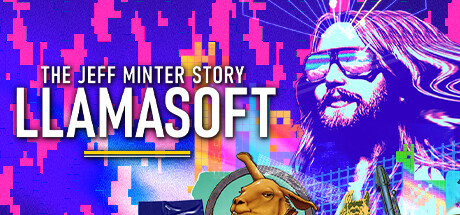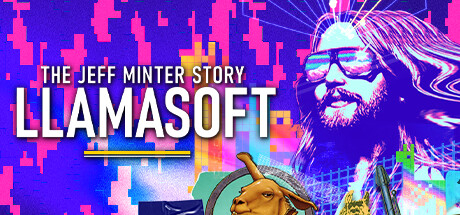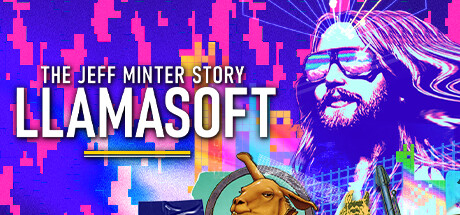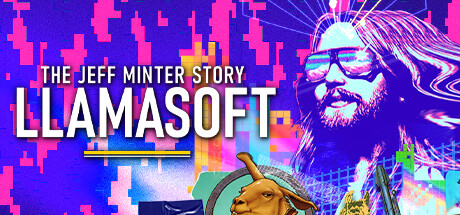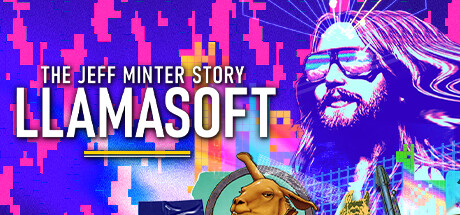
Llamasoft: The Jeff Minter Story (NS) - Review
by Evan Norris , posted on 19 March 2024 / 1,608 ViewsIn the world of video games, there are only so many auteurs — designers like Hideo Kojima and Fumito Ueda whose unmistakable artistic identity and overriding creative approach make them the "author" of any video game they produce. Jeff Minter, the English programmer who founded Llamasoft, is one of those few. To celebrate Minter's many accomplishments over the past 40 years, the retro revivalists at Digital Eclipse created Llamasoft: The Jeff Minter Story, a compilation that's one part virtual museum, one part documentary, and one part video game anthology.
The Jeff Minter Story is the second installment of Digital Eclipse's "Gold Master Series", following last year's The Making of Karateka. Like that game and 2022's Atari 50: The Anniversary Collection, it relies on an interactive timeline to tell a story. Featuring documentary footage, archival images, concept art, notes, and more than 40 video games, the timeline covers the first 15 years of Minter's career, from his humble beginnings on the ZX81 to his magnum opus Tempest 2000, which became the killer app on Atari Jaguar.
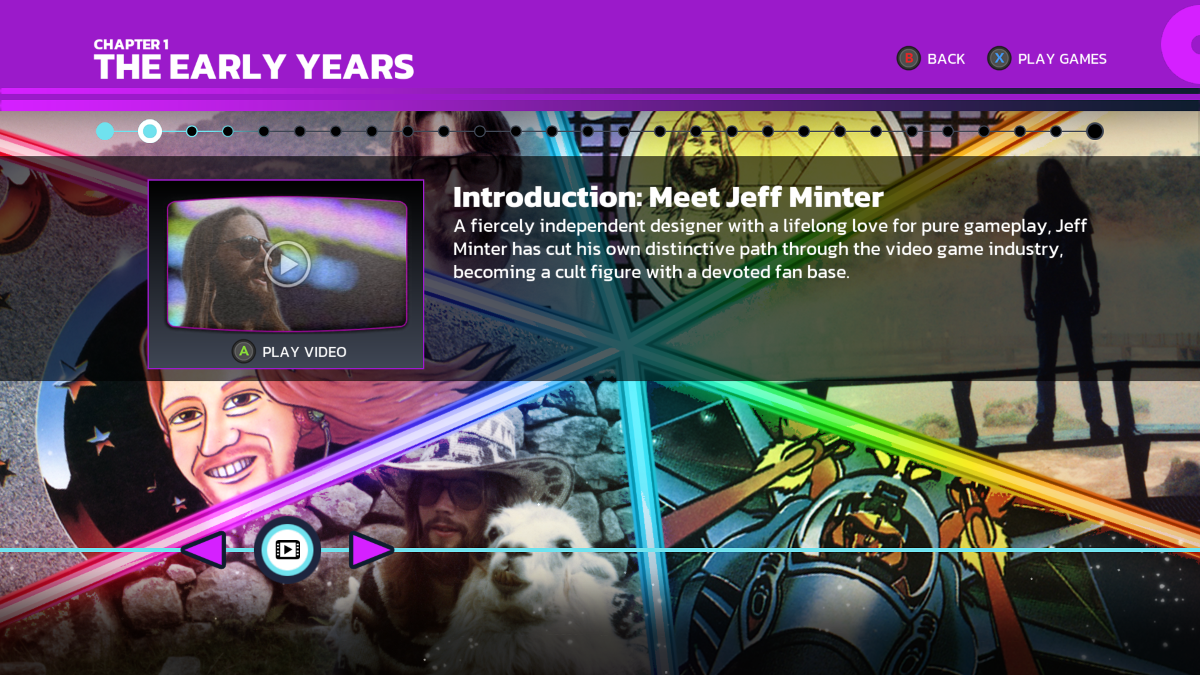
In terms of presentation, The Jeff Minter Story is excellent. The format Digital Eclipse discovered in Atari 50, and deployed again in The Making of Karateka, works wonders here, dividing Minter's career into four different phases and then elaborating upon those phases with primary sources from the era. There are details on the origins, distribution, and critical & commercial reception of each game; and contemporary interviews with journalists, influencers, and, of course, Minter himself. The only issue is a technical one, which appears to be specific to the Switch version of the game: the audio in interviews is out of sync, at times. Note that Digital Eclipse is currently working on a patch. You can skip ahead or back in a video to fix the problem in the meantime.
Regardless of any audio glitch, you'll find in The Jeff Minter Story a wealth of information about the creator's early career in game development. Digital Eclipse weaves an intriguing narrative that starts with a 17-year-old Minter teaching himself to program simple games on the Commodore PET in 1979; covers the creation of his studio Llamasoft and its commercial releases on 8-bit home computer platforms Commodore VIC-20, Commodore 64, Sinclair Spectrum, and Atari 800 throughout the 1980s; and culminates in his significant contributions to the ill-fated Jaguar home console in the mid-90s.
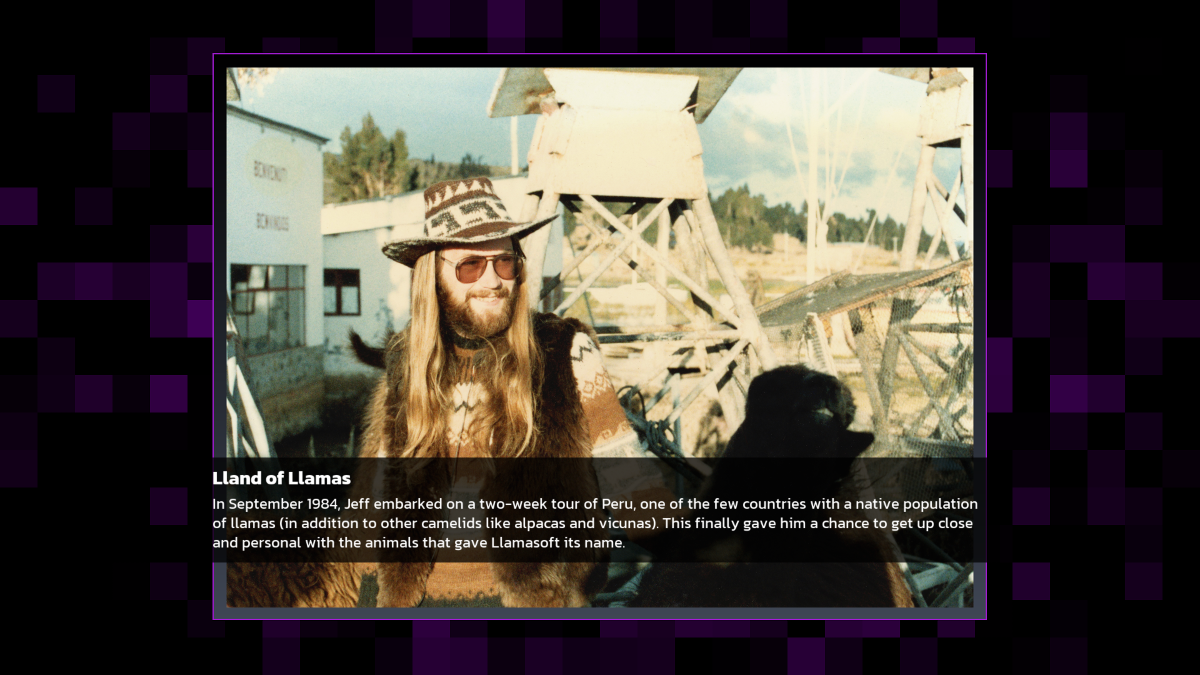
Overall the compilation does a good job at establishing the technological and cultural context for Minter's ascent in the burgeoning video game industry of the 1980s. Through newsletters, convention & trade show photos, game manuals, advertisements, and Minter's own words, we see how the English developer made a name for himself, endeared himself to a legion of fans, and maintained an experimental, adventurous, and independent mindset even during a period of rapid corporatization. We also learn something about Jeff Minter the person — how he consumed arcade games in his youth in the sleepy English town of Tadley, how he partnered with his parents to get Llamasoft off the ground, and how he fell in love with llamas, sheep, and all manner of beasties.
That said, The Jeff Minter Story does leave room for improvement, particularly when it comes to interviewees. All of Minter's interviews are, obviously, essential, and the perspectives from journalists of the era are illuminating. A piece from Gary Penn, who famously penned a negative review of Llamasoft's Mama Llama in Zzap!64, is fascinating in how it describes a sometimes symbiotic, sometimes tense relationship among game makers, critics, and consumers that endures to this day. Other interviews, particularly those featuring YouTubers and super-fans, seem redundant. The compilation would benefit from the inclusion of additional authorities in the field — decision-makers who worked for Atari in the early 90s, or Minter's programming peers whose 8-bit computer games were influenced by his own.
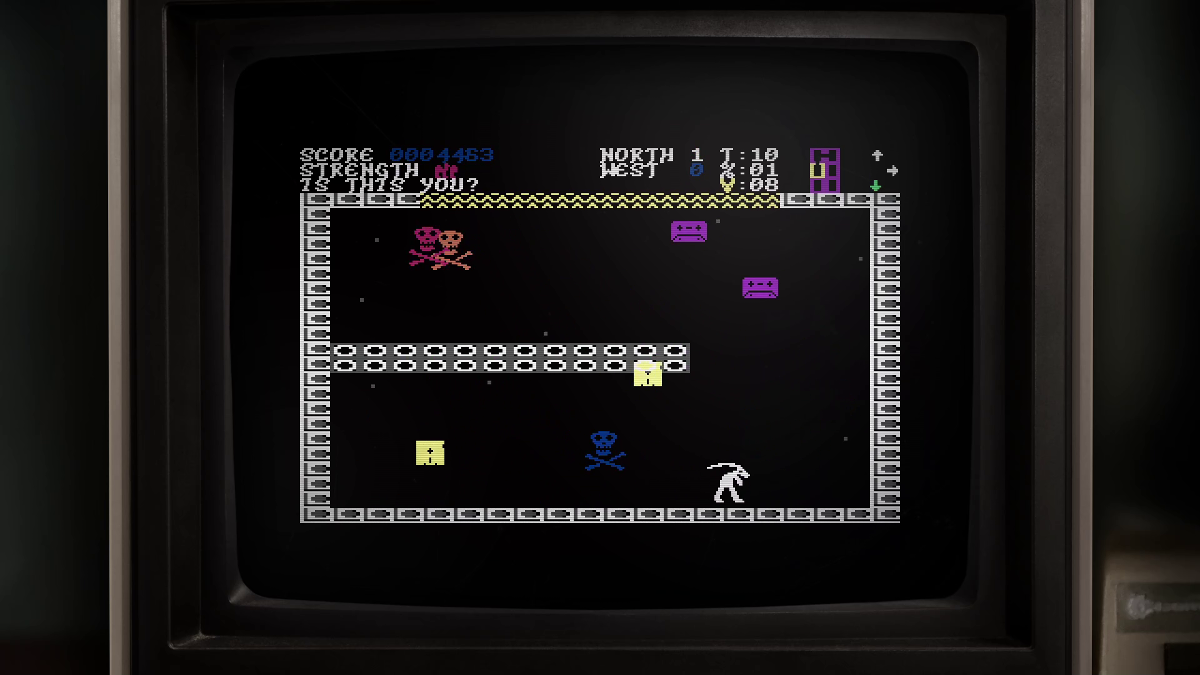
It would also benefit from more information about the later stages of Minter's legendary career. While The Jeff Minter Story has the years 1979-1994 locked down, it hardly shines a light on everything from 1995 through today. To be fair, the majority of Llamasoft's most beloved and impactful games came from this formative period. Still, there is an interesting story to be told about the studio's evolution in the years after Jaguar, particularly against the backdrop of an increasingly commercialized industry and the advent of the indie scene. Perhaps that information has been saved for the upcoming documentary Heart of Neon, directed by Paul Docherty, who partnered with Digital Eclipse on this release.
Because the compilation tends to trail off around 1994, it's missing all the Llamasoft releases from the past 30 years. If you're looking for Minter's iOS, Xbox 360, Vita, and PC titles, you'll have to look elsewhere. Even without these games, however, The Jeff Minter Story doesn't feel lacking in content. Indeed, as a deep dive into the first decade-and-a-half of his coding career — arguably his most experimental, ambitious, and triumphant years — it would be difficult to ask for more. There are 42 games on offer here, across 8 different platforms. Some are incredibly rare and/or inaccessible, others are entertaining for their weirdness, and several of them are stone-cold classics that hold up 40 years later.
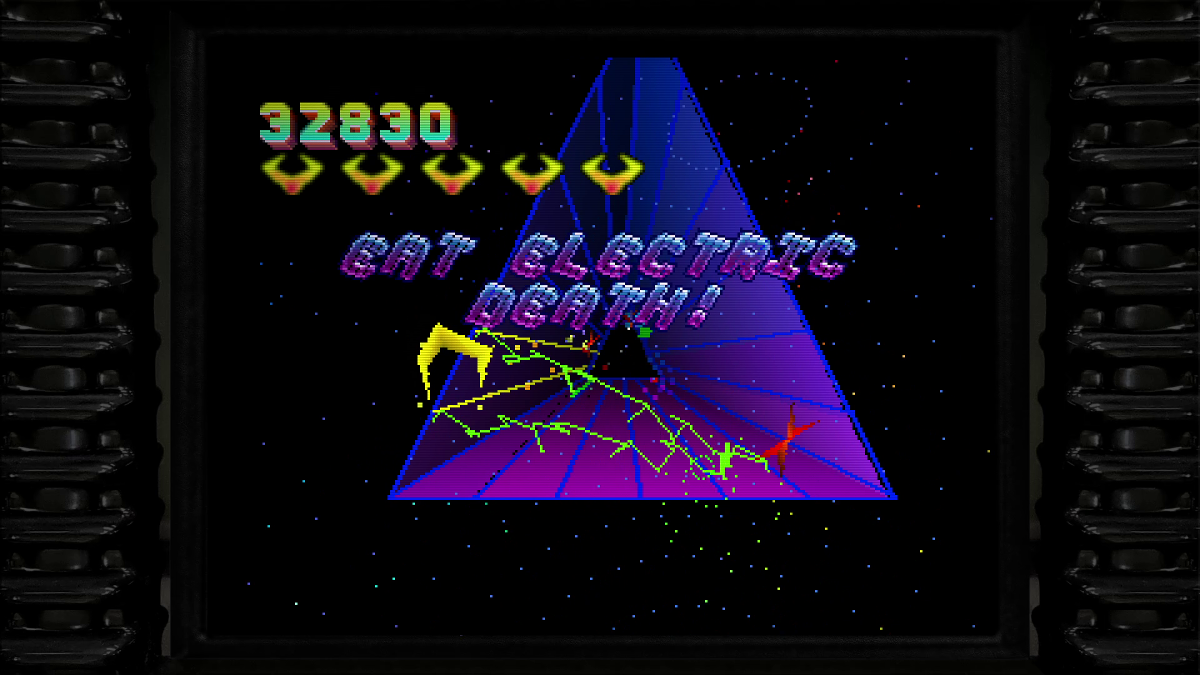
Some of the best games include Gridrunner (and all its variations), Llamatron: 2112, Revenge of the Mutant Camels (particularly the Atari ST version), and, of course, Tempest 2000. The very best individual game in both Atari 50 and The Jeff Minter Story, Tempest 2000 is Minter's masterpiece. It represents everything special about the man: his ability to emulate and improve upon an established template, his enthusiastic embrace of the interplay between surreal graphics and psychedelic music, and his mastery of addictive arcade-like action.
Naturally, not every game is brilliant. A few, like Mama Llama and Hellgate, are so experimental and ambitious they sometimes get in their own way. A handful are light synthesizers, and not exactly games — at least not in the traditional sense. At least one, Ratman, a clumsy action game from the Commodore VIC-20 days, is entirely skippable. And some are simply too ancient to truly enjoy.
Recognizing this, the developers at Digital Eclipse added a few optional quality-of-life upgrades to several of the earlier titles, in a bid to make them more approachable for a modern audience. For example, the oldest game in the collection, 3D3D, benefits greatly from boost mode (which significantly improves the frame rate) and FPS input mode (which replaces the original movement controls with a modern first-person shooter control scheme). On top of any QoL fixes, each emulated game benefits from a suite of modern amenities: save states; configurable controls; and screen, filter, and border options.
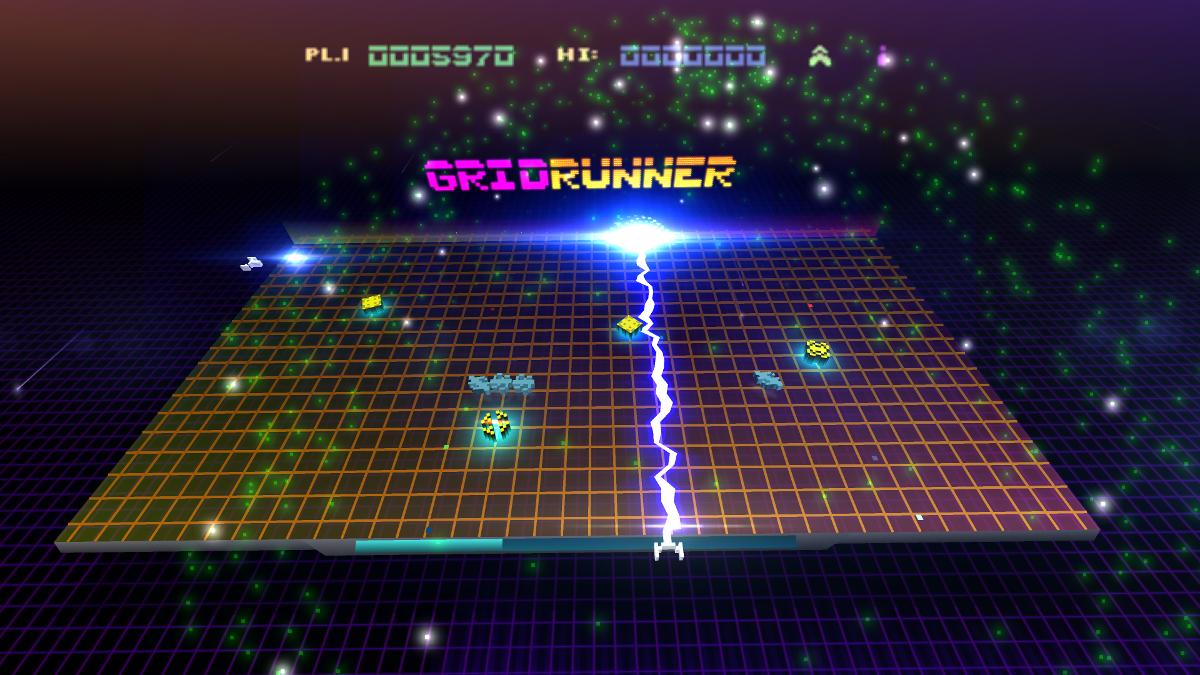
In addition to introducing all these modern options, Digital Eclipse left one last parting gift: Gridrunner: Remastered. A revision of one of Minter's finest titles, it starts with the Commodore 64 version of Gridrunner (for complete gameplay accuracy) and layers on top of it modern graphics and sound, resulting in what feels like a brand new experience.
Jeff Minter is a one-of-a-kind force in the gaming space, a fiercely independent programmer, and one of the industry's most recognizable voices. Llamasoft: The Jeff Minter Story, which provides new insights into his early coding work and boasts over 40 games across multiple platforms, is worthy of his brilliance. While it fails to cover his life and times over the past three decades, it provides a definitive look at the first 15 years of his game development career, which started in a humble home in Tadley, England and ended with a flagship title on the Atari Jaguar.
This review is based on a digital copy of Llamasoft: The Jeff Minter Story for the NS, provided by the publisher.
More Articles
I picked this up, as I played a few Llamasoft games on my Atari 130XE. My favorite game on this collection is
Hover Bovver. I even made a video about it.
https://youtu.be/0vhjmNqsPSs
Much like the Atari 50 collection, this was all before my time, so I wouldn't really be able to appreciate it (no nostalgia/legacy of appreciation for them to build on), but the way they weaved documentary elements into both of these collections sounds really cool for people who grew up with these games.
Reminds me of the golden age that was the early 2000s






















